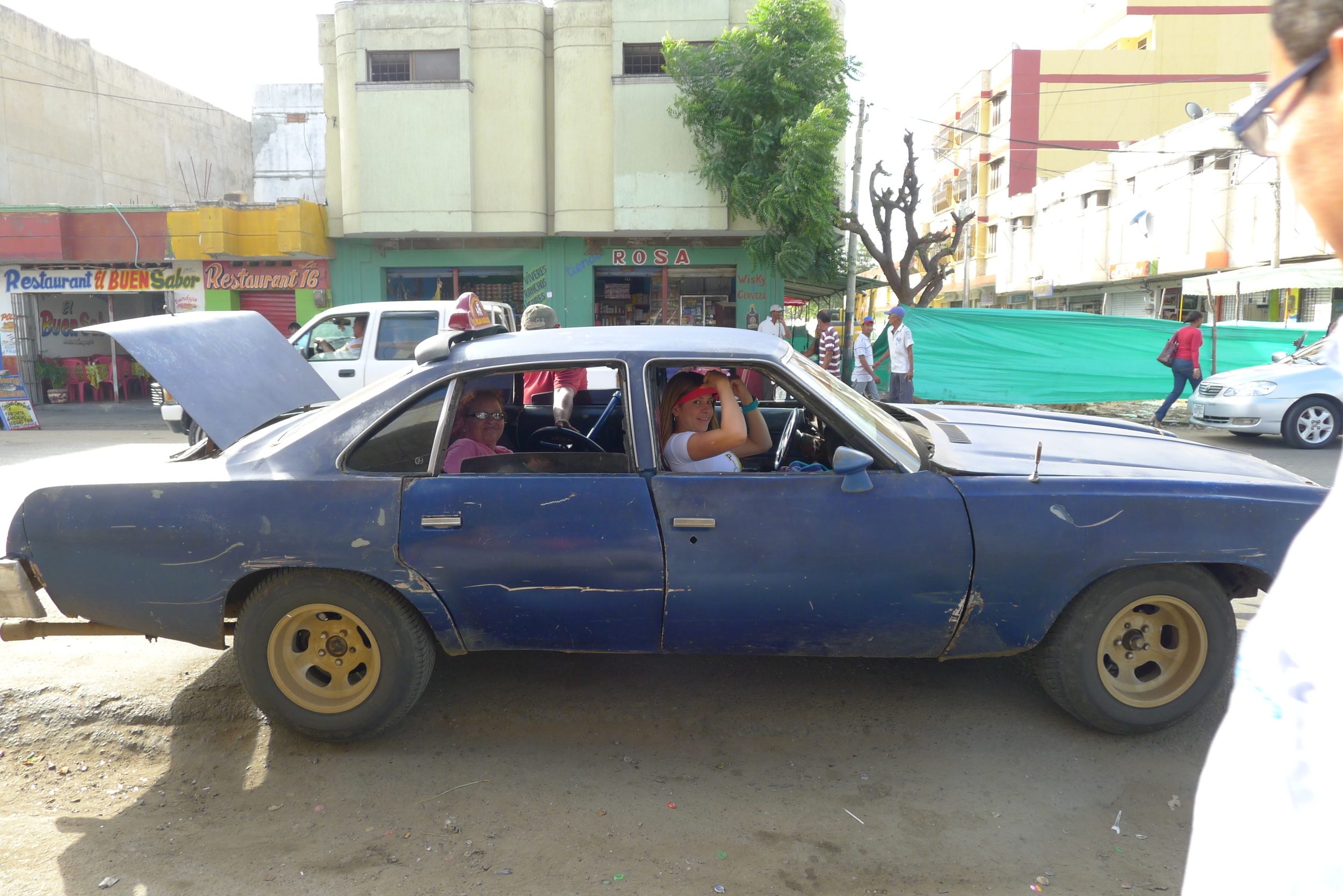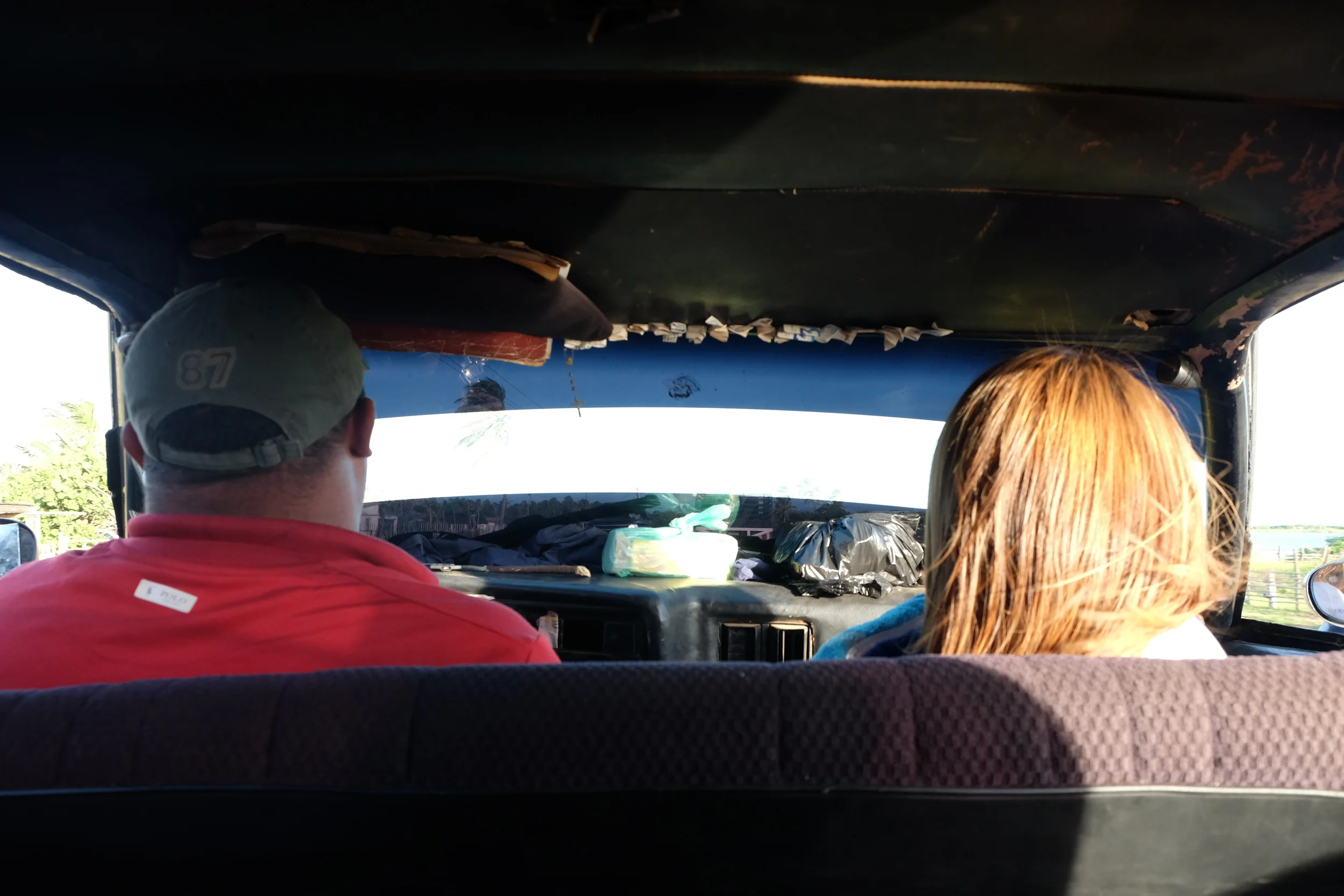We arrived in Maracaibo after 8 hours on a bus from Mérida. Despite deliberate efforts, we managed to arrive in the dead of night and, against our own common sense, we sought a ride to Maicao while it was still dark out. All the research we had done said that a por puesto was a common, easy, and inexpensive way to get through both Venezuelan and Colombian borders, but we realized at the bus terminal that we had no idea how one looks. A man in a white button-up led us to a man in a t-shirt who led us to a man with an old, beat-up, sketchy-looking car, the kind we would have avoided under any other circumstances. We paid him the fare, looked at each other and shrugged as he solicited for more passengers.
When it came time to go, we threw our bags in the trunk and reluctantly got into the back seat. The driver's friend suspiciously drove alongside us in his own death mobile for some time and they even stopped at a house for some gas. As the sun slowly began to make its appearance, though, we felt a slight burden lifted. The driver had an easiness about him, sweet talking the young lady beside him, moving to the blaring music, sipping coffee he'd bought from a street vendor and then tossing the cup out the window when finished. After 4 hours of dodging cars, driving against traffic, and passing in the shoulder, we finally made it to the border. He slipped some bills to all the right people to avoid harassment by the National Guard and Police. By request, we handed over a couple of bills and when one policeman dared pull him over, he got out of the car, threw a fit, and, just like that, was waved on. While getting our passports stamped, we watched on wearily as he waited patiently with our bags first in Paraguachón and then in Maicao and when we parted ways at the bus station, we all of the sudden felt vulnerable without him, left to figure out Colombia all on our own.


